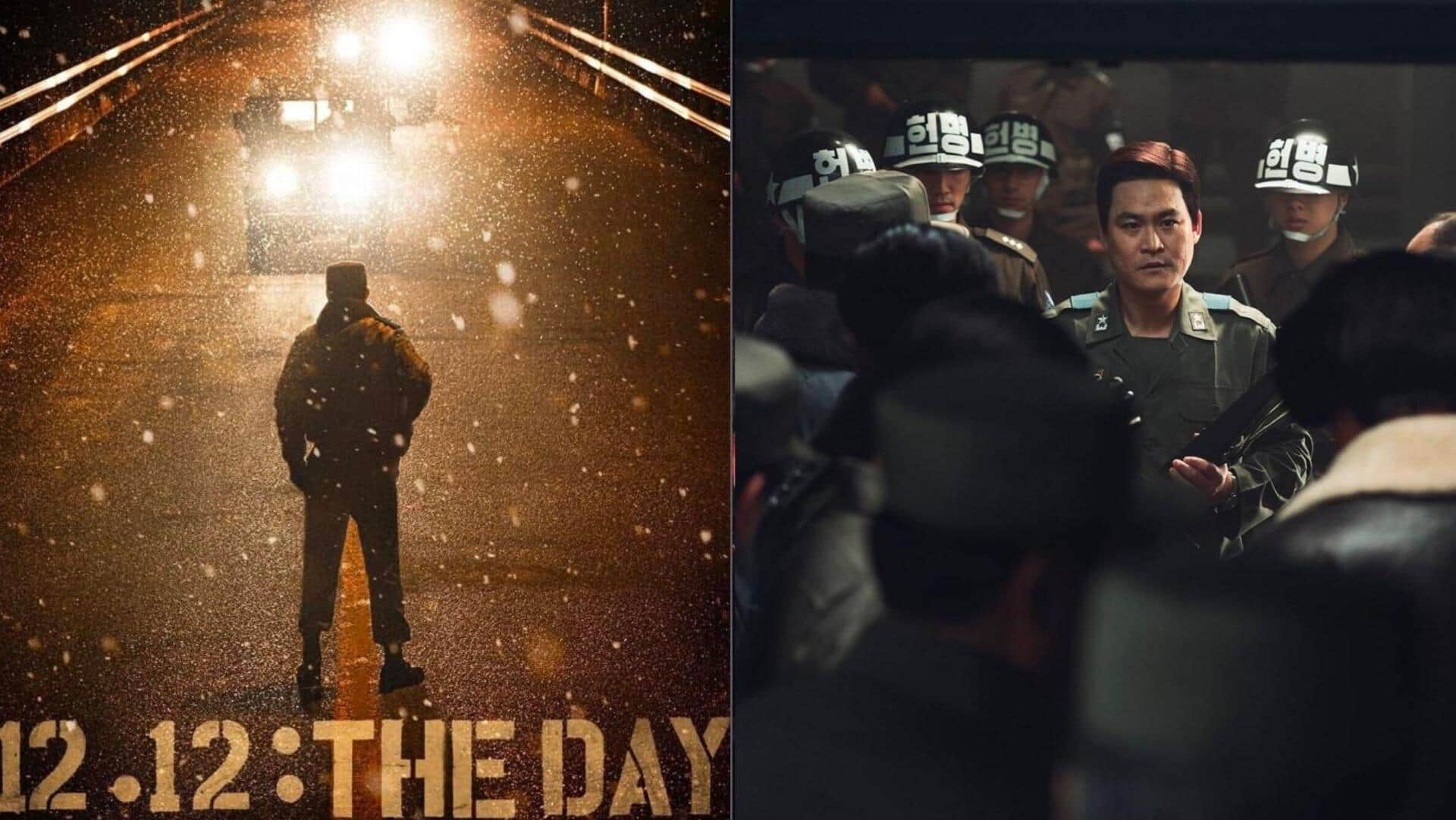
'12.12: The Day' shatters box-office records: Explore plot, cast, crew
What's the story
Historical drama film 12.12: The Day has revitalized South Korean movie theaters with a robust $11M opening weekend, reported Variety. Directed by Kim Sung-soo, the film is a fictional account based on real events from 1979. Since its release last week (November 22), the film has reportedly garnered $14.1M over its five-day haul, securing the second-highest opening of the year, following the blockbuster The Roundup: No Way Out.
Plotline
What is the story of '12.12'?
The film's narrative weaves through a tense period marked by political upheaval in Korea. After the assassination of President Park in 1979, martial law is imposed, leading to a coup staged by Security commander Chun Doo-kwang and his followers. Lee Tae-shin, a principled commander, opposes the political involvement of soldiers and clashes with Chun. The conflict intensifies, causing military leaders to delay decisions, and the Minister of Defense goes missing.
Statement
Director Kim's personal connection to the 1979 coup
The film's director, Kim, was inspired to create 12.12: The Day after hearing gunshots on December 12, 1979, during a coup in Seoul. He shared in an interview, "I heard the gunfire on that historic day, and the memory stayed with me for a long time." Kim was initially hesitant about turning the story into a movie but ultimately chose to blend history and fiction to depict the events.
Character details
Portraying real-life figures through fictional characters
12.12: The Day follows fictional characters closely resembling real-life figures involved in the coup. Hwang Jung-min plays military leader Chun, based on former president Chun Doo-hwan, while Jung Woo-sung portrays Lee, the Commander of the Army Capital Security Command, inspired by General Jang Tae-wan. Kim reportedly emphasized that he did not want to portray the coup's instigators as heroes or admirable figures.
Facts
Recreating historic scenes with visual effects and veteran actors
A key scene in 12.12: The Day shows military tanks taking over Gwanghwamun, central Seoul. Kim wanted shots that mirrored photographs taken during the actual coup, so the visual effects team recreated the scenes by filming on a set by the sea and adding visual effects to the footage. Collaborating with veteran actors Hwang and Jung, Kim said he aimed to give the film a war reporter's footage feel, capturing events as they happened.